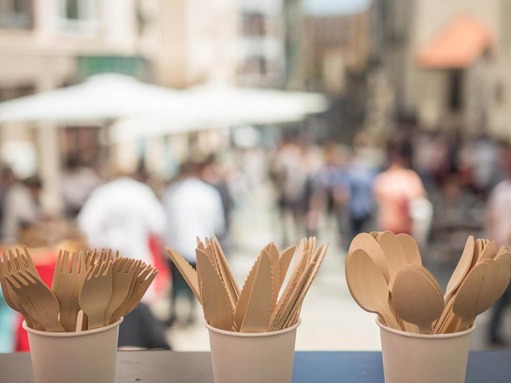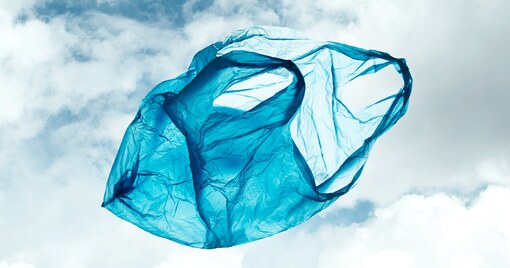Supermarkets and food giants are digging for digging plastic packaging and even more environmentally harmful materials, an investigation has found. To cut plastic pollution under public pressure, companies are introducing cardboard containers coated with non-recycled materials and bags that created “too much” emissions of greenhouse gases, the researchers said.
New items, such as composites or wood cutlery, may have potentially more significant environmental consequences, including higher carbon emissions, than plastics.
The Green Alliance insider interviews with five UK supermarkets and seven big-name companies that produce groceries and personal and cleaning products, concluding that “emerging an unrelated and potentially counterproductive approach to resolving plastic pollution”.
The report said that more than two years after the release of Blue Planet II, relatively little has changed, with supermarkets still putting the equivalent of 900 pieces of plastic each year on the shelf for every person in the UK.
One supermarket said customers had been complaining about the plastic “cruel”, revealing: “It has been mostly complaints, saying that plastic is evil and there is no place, any positive it is food waste and whatnot Regardless of addressing, it may be… it has become cruel. We have seen an over 400 percent increase in customer queries in the last year itself.
Another insider said that some decisions were taken, knowing that some environmental burden may increase.

But customer outrage did not necessarily translate into changes in purchasing habits, report authors found. One interviewer said: “When it comes down to real consumer behavior, they haven’t changed yet.”
Some supermarkets have recently replaced single-use plastic bags for loose produce and single-use paper bags for bakery items, described by the Green Alliance as “a worrying trend”. Paper bags, it said, “which are often just as redundant as their plastic counterparts, may have too much carbon effect, although this may depend on material sources and product specification.”
Decisions for trench plastics were often made without considering the environmental impact of the substitute material, or whether there were sufficient collection and treatment infrastructure in place.
“Consumers … The report states that bio-based, composites and biodegradable are incredibly skeptical of what they mean.
Some companies that had tried ‘Composite’ plastic suggested that it was not inferior as expected.
And many insiders wanted the government to play a more significant role in the use of plastics, recycling, and refilling schemes, as well as setting standards across the industry.
Adam Read, Director of Foreign Affairs at Suez Recycling and Recovery UK, said: “As the war on plastic rages, avoiding unintended consequences should be at the forefront of everyone’s mind. Change must be managed and planned. Libby Peak of the Green Alliance said almost all the companies interviewed came up with reusing and refilling plans.
“One problem is that you have to embed the behavior,” he told the Independent. “Most supermarkets allow people to take their containers for delicatessen counters, but not many people know.”
The inventor of very thin plastic bags for fruit and veg used them several times to design them so they would be less harmful than single-use paper bags, she said, but the best option was for single-use materials to be phased out. Fiberboard trays and paper straws are coated in non-recycled materials. At the same time, bags claimed to be composites or bio-based will damage plastic streams if incorrectly put into recycling, just as ordinary plastic bags will destroy recycling.
Andrew Opie of the British Retail Consortium said: “All responsible retailers agree that climate change needs to be at the heart of their business, whether it is sourcing products or changing packaging.
“Plastic remains the most effective material in many circumstances — for example, plastic-coated cucumbers in the last 14 days, reducing food waste.
“A consistent waste and resources strategy is one that prioritizes reducing the environmental impact of the things we buy, not just reducing the use of plastics.”
Get the best of The Thus delivered to your inbox – subscribe to The Thus Newsletters. For the latest Breaking News and Top Stories follow The Thus on Facebook, Twitter, Instagram, and Pinterest and stay in the know with what’s happening in the world around you – in real-time.





















































Discussion about this post